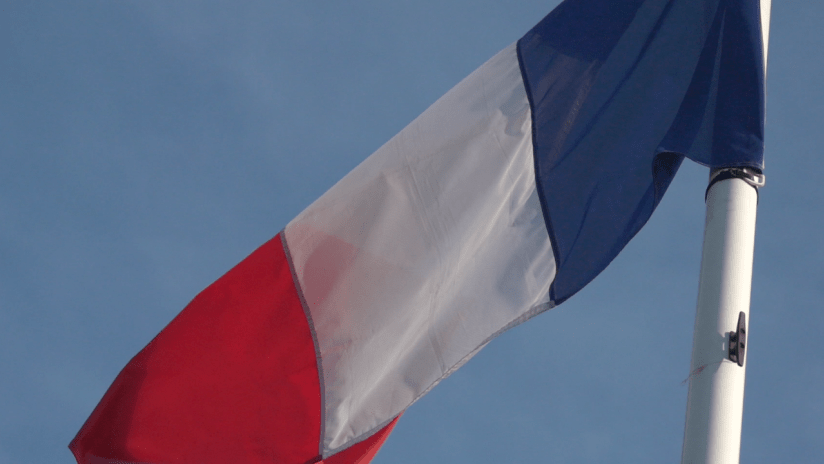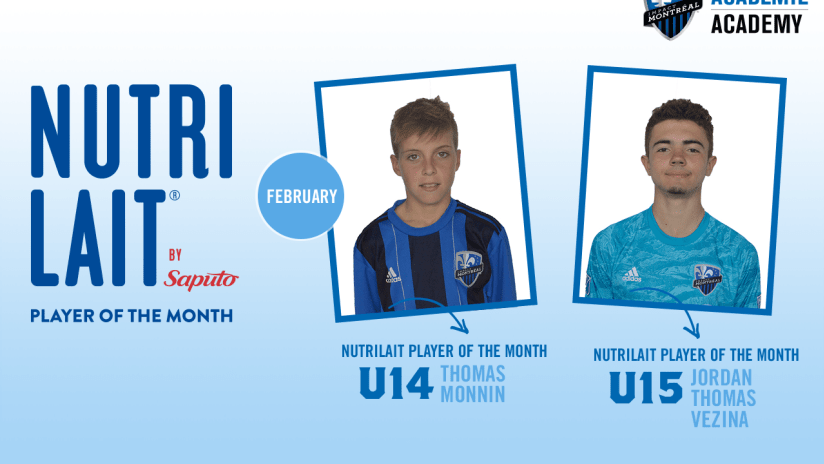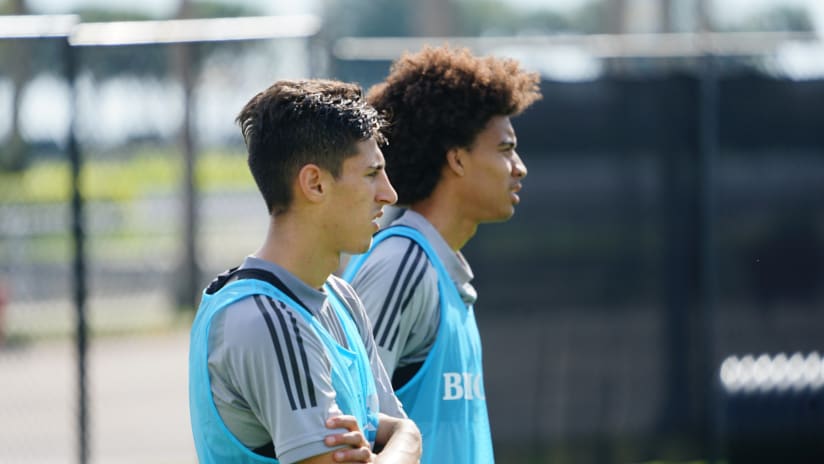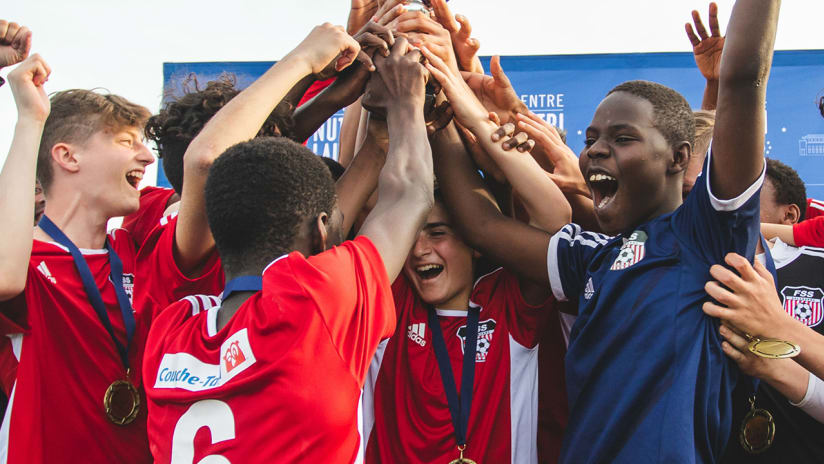From April 14 to 17, Montreal Impact players of the 2003 generation (U13) took part in the Tournoi Sans Frontière in Sens, France. 24 teams entered the tournament, including 13 from the French Ligue 1 and 8 from abroad. Montreal finished 11th, reaching their goal to clinch a spot in the upper half of the standings.
The players who made the trip have been with the club for one to three years. This wasn’t their first international experience. “The 2003 generation has already played in the CONCACAF Champions League twice, but also in a U13 tournament in Bobigny last year and in our own international tournament,” explains Philippe Eullaffroy, Montreal Impact Academy Director. “For two years, we’ve wanted our U13-U14 players to enter 5 or 6 international competitions before they start playing in the USSDA at the U15 level – other than that, they only play friendly games, meaning that it’s their only contact with games of a competitive nature. Due to the schedule, it’s difficult to enter older teams in international tournaments.”
Even though they had already faced opponents from abroad, the Montreal kids needed time to adjust in Sens. “They looked at the list of the participants, and for the first time, they felt surrounded by excellence. I don’t want to minimize other tournaments, but Marseille or Juventus appeal more to their imagination than their previous opponents. At first, they see the names of the clubs: that leads to stress, and they must manage it – especially as they had rarely faced such a number of renowned clubs and quality players.”
Beyond the name of the opponents, the whole experience is essential to the Impact young players’ development,” insists Eullaffroy: “When they face Bordeaux, they imagine the French Ligue 1 team. But they’re only facing 13-year-old boys playing for Bordeaux. As soon as they realize that they can match them, our players start to express themselves. That’s awesome: without such tournaments, that switch in their mindset wouldn’t happen. They need that experience to take a step forward. The coaches give them the same instructions as when they’re playing Quebec, but they resonate differently in such circumstances. They can also compare themselves: to Rennes, winners of the tournament, or to Juventus who, like us, faced Marseille. They realize that they aren’t outclassed. Nothing can replace such an experience.”
The difference was already noticeable during the tournament. “After three or four games, they started to believe that they could express themselves on the field and get good results,” continues Eullaffroy. “The draw against Monaco was a turning point; it released them mentally. Our last game, against Toulouse, was the strongest evidence of their improvement: it was our best game of the tournament, despite the fatigue, and we felt from the kickoff to the final whistle that our players had no complexes anymore.”
Even if they only faced French opponents, the Impact players and coaches enjoyed the international nature of the event. “It was a matter of details, and we have no control over the hazards of the schedule. We lost on penalties to Marseille. If we had won, we would have faced Juventus. That’s a tiny regret, but we were always close to the clubs from different countries. We stayed at the same place as FC Tokyo, our kids could see every team play, including Juventus, but also Genk that was very strong.”
International tournaments also allow players and coaches to find out where they really stand. “We have the confirmation that we can be regarded as a club with a solid Academy system,” adds Eullaffroy. “We bear comparison with strong European clubs. But we aren’t in a position to win such tournaments just yet: that shows us the room for improvement and the work we still need to do.”
The Impact Academy policy on playing abroad is only two years old. Patience is still needed to see the first results. “Our U15 will play in the USSDA next year (US Soccer has changed the names of their age categories to the year of birth, to comply with the worldwide standards)”, explains Eullaffroy. “It will be the first generation with such an international experience. Then, we really will be in a state where we can evaluate its impact.”




